The Bible often uses the image of rain to describe God’s provision for His people. He uses rain to water the earth and provides it with nourishment. Yet, the spiritual meaning of rain in the Bible can go much deeper.
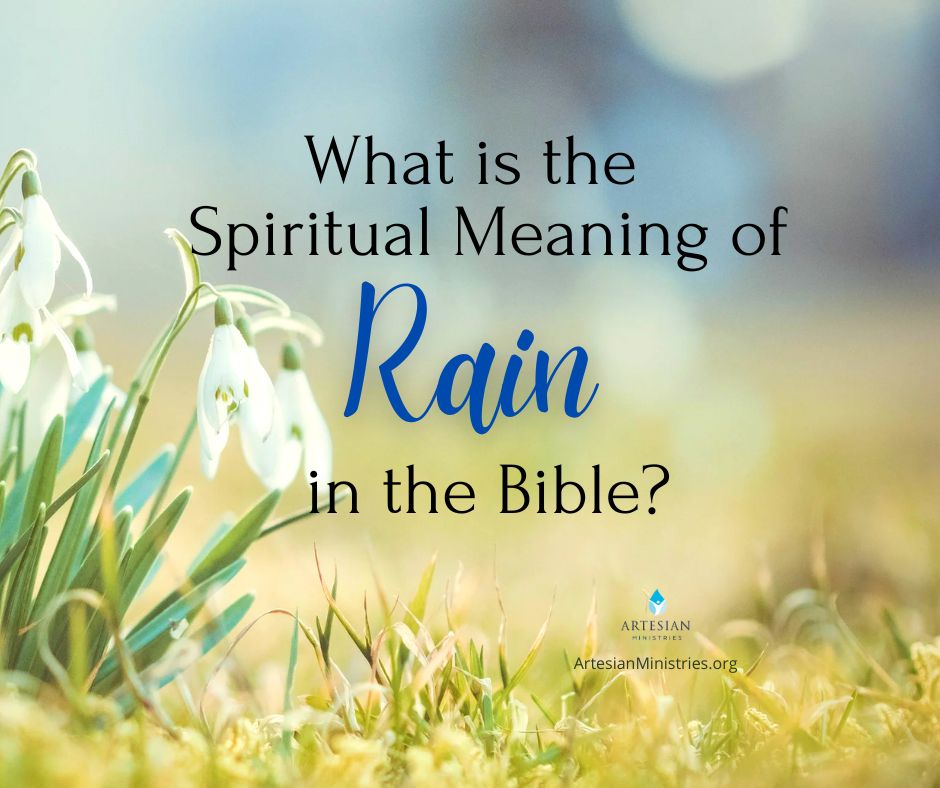
Table of Contents
Spiritual Symbolism of Rain in the Bible
Rain as a Sign of God’s Blessings
Rain and Renewal: Cleansing in Biblical Context
Rain as a Metaphor for God’s Mercy
Rain as a Test of Faith and Patience
Spiritual Lessons from Biblical Rain Narratives
Modern Reflections on the Spiritual Meaning of Rain
Spiritual Symbolism of Rain in the Bible
Rain appears throughout the Bible, carrying deep spiritual significance that goes much beyond its physical role. There is early rain, latter rain, spring rains, heavy rain, winter rains, and many others.
For many biblical writers, a season of rain represents more than weather. The biblical meaning of rain symbolizes God’s love, blessings, renewal, new life, sustenance, or even discipline with His children.
Understanding the symbolic meaning of rain unlocks new insights into faith, divine grace, and personal growth.
Rain as a Divine Blessing
Rain often symbolizes favor and great abundance from our loving Father upon the land and people. It serves as a tangible sign that God is providing for both physical needs and spiritual nourishment. He shows His ongoing care for every living thing.
Many Scriptures link rains of different seasons with purification and new beginnings. Showers of rain act as a natural metaphor for God washing away sin and making all things new. This connection encourages believers to see rain as a symbol of spiritual reset and growth.
Rain can metaphorically represent God’s mercy falling generously on all people, regardless of merit. Just like rain waters the earth indiscriminately, so does God’s grace flow freely toward humanity.
Life-Giving Element
In an agrarian context, rain of spring at the right time is essential for crops and survival. Biblical authors use to illustrate God’s life-giving power and provision.
This connection links the spiritual with the practical, reminding believers to depend on divine timing and generosity.
Sometimes, withholding of rain in Scripture symbolizes times of trial or spiritual drought that test faith and encourage endurance. Waiting for rain reflects the patience required in trusting God’s plans.
Rain is tied to God’s promises. In the story of Noah, rainbows signify continuing commitment. It stands as a visual and experiential reminder of divine faithfulness through changing seasons.
The amount of these seasonal rains invites believers to a rhythm of reflection, dependence, and gratitude. This life-giving water deepens spiritual awareness and connection with God’s sovereignty.
Common Myths
Myth: Rain always means immediate blessing.
Truth: While rain often signifies direct blessing, the Bible also shows rain used as a form of testing or discipline, so its meaning depends on context.
Myth: The Bible portrays rain only in a positive light.
Truth: Rain can be both nurturing and challenging, symbolizing blessing, judgment, or trial, depending on the passage.
Myth: Rain symbolism is universal and unchanged throughout the Bible.
Truth: Different books and authors use rain imagery in varied ways, shaped by historical context, theology, and narrative purpose.
Related: Ladybugs in the Bible – Spiritual Interpretation
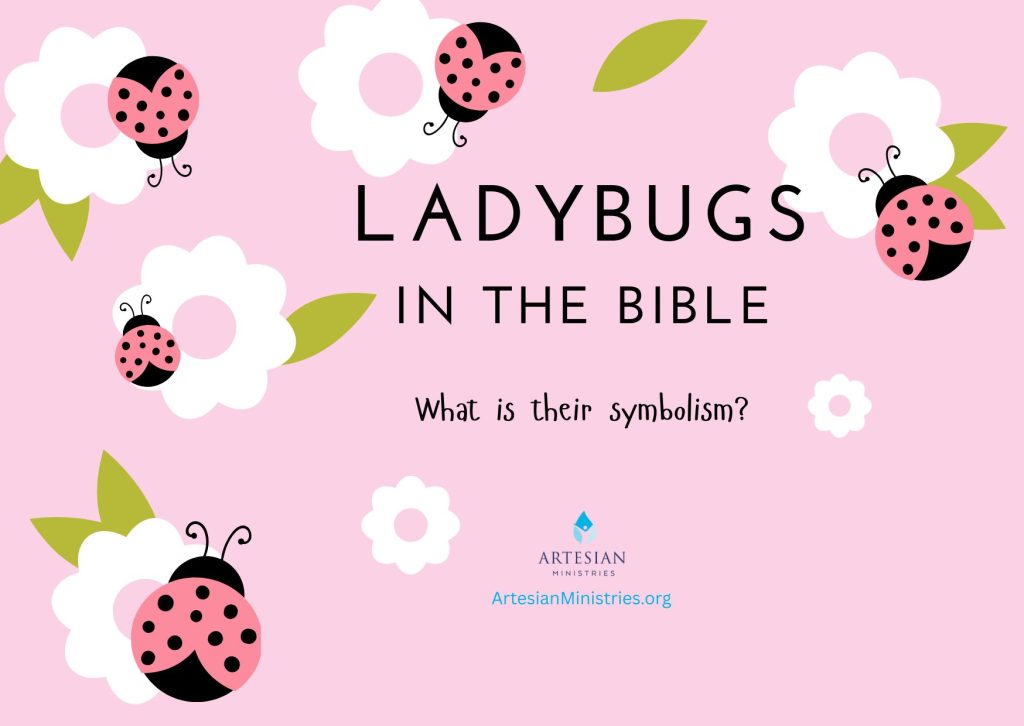
Rain as a Sign of God’s Blessings
Throughout much of the Bible, rain stands out as one of the clearest signs of blessings from God. This is particularly true in an agrarian society reliant on a certain amount of rainfall for its crops.
When land receives particular periods of rain, it’s a hopeful message that crops will grow, livelihoods will be sustained, and communities will prosper.
Whether rain appears as later showers of spring or the first showers of autumn, the outpouring of God can have profound spiritual significance.
Rain Reflects God’s Favor
The biblical symbolism of rain is frequently linked to divine approval. This spiritual rain can be seen as a signal that God is pleased and sustaining His people. This teaches readers to view blessings as expressions of relationship along their spiritual journey.
Scripture passages often condition rain on faithfulness to God’s commandments. This suggests that rain reminds us that blessings come through covenantal obedience. This highlights a dynamic interplay between divine grace and human responsibility.
Rain ensures the growth of food sources, reinforcing God’s role as provider and life-giver. Abundant showers offer comforting truth, especially in arid biblical lands. It reminds us that God supplies both physical and spiritual nourishment.
Many poetic and prophetic books celebrate rain as a metaphor for God’s blessings. This tangible love of God invites worship and gratitude for life’s daily provisions. These references encourage a spirit of thankfulness and dependence on God.
Rain Contrasted With Drought
Severe drought or the absence of rain in the Bible vividly illustrates the consequences of divine favor or displeasure. This contrast heightens appreciation for God’s blessings and warnings.
Biblical rain is commonly described as falling on fields, cities, and nations. These biblical references show that rain nurtures communities and cultivates social well-being. It’s a reminder that blessings ripple beyond individual benefit to collective flourishing.
Rain symbolizes God’s blessing both on individuals (like Abraham) and whole nations (like Israel), underlining the scope and inclusiveness of divine providence. It points readers to trust in God’s overarching plans and care.
Related: Most Powerful Thursday Morning Prayers and Blessings

Rain in the Bible often serves as a vivid symbol of renewal and cleansing, washing away what is old and sinful to prepare the way for new growth.
Rain and Renewal: Cleansing in Biblical Context
Just as rain refreshes the earth, biblical passages use rain imagery to show spiritual purging and second chances.
If you’ve ever found yourself craving a fresh start, these themes of cleansing through rain resonate powerfully.
- Rain as Spiritual Washing: Rain symbolizes God’s power to cleanse sin, guilt, and moral decay, inviting repentance and renewal. This assures believers that transformation is possible through divine intervention.
- Connection to Baptismal Imagery: The purifying aspect of rain parallels baptism, emphasizing rebirth and the washing away of sin. Understanding this helps bridge Old Testament imagery with New Testament faith practices.
- Cycle of Old and New: Rain’s renewing effect illustrates the natural cycle in spiritual life—letting go of old burdens to embrace new growth. This cyclical perspective encourages patience and hope amid struggles.
God’s Initiative in Renewal
Rain falls because God decides when to refresh the earth, reflecting that renewal begins with divine grace, not human effort alone. This humbles and comforts believers who experience hardship.
Biblical rain signals not a one-time event but ongoing renewal. It reminds readers to seek daily spiritual cleansing and transformation. This promotes a lifelong journey rather than a single change moment.
Rain’s arrival in dry regions often brought celebration. Autumnal rains at the latter end of October and the sound of abundance of rain are described with joy and praise. This uplifts different cultures with the promise of positive change and a restored relationship with God.
Even during droughts or dryness, the promise of rain renewal sustains faith, teaching endurance and trust in God’s timing. This reassures those facing spiritual dryness or discouragement.
Related: What is the Biblical Meaning of Restore and Renew?
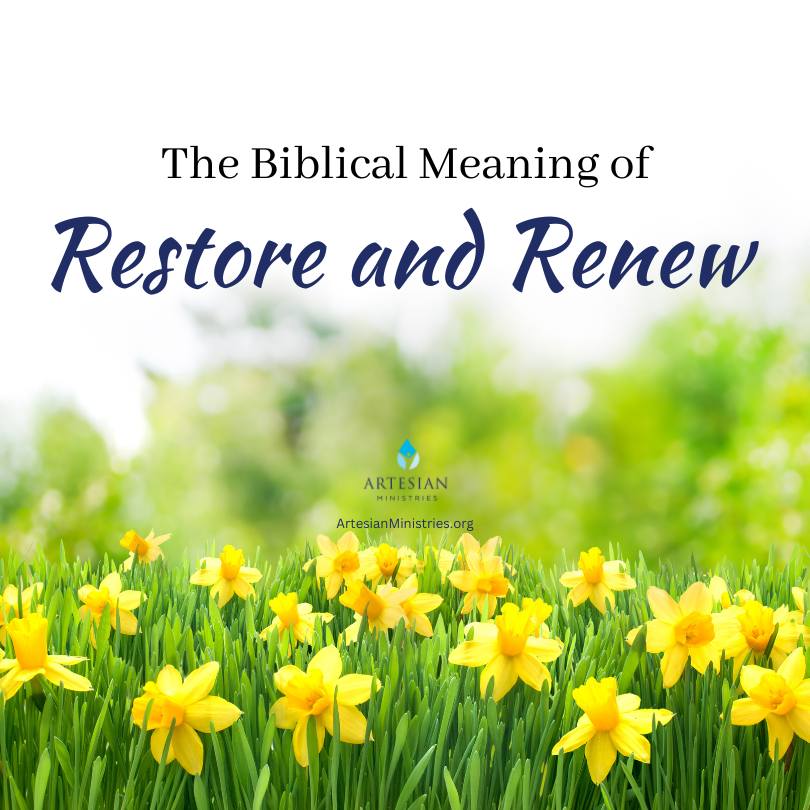
Rain as a Metaphor for God’s Mercy
In the Bible, rain is frequently used as a poetic metaphor illustrating the extent and generosity of God’s mercy. Just as rain refreshes the earth universally and without partiality, God’s mercy flows abundantly to all people.
This section explores how rain imagery beautifully captures divine compassion and how that understanding can inspire you to embrace grace in daily life.
- Universality of Mercy: Like rain that falls on both the just and unjust, God’s mercy is unlimited and extends to everyone regardless of status or past mistakes. This reinforces the biblical theme of unconditional love.
- Unpredictability and Generosity: Rain’s timing and quantity are often beyond human control, reflecting how God’s mercy can surprise us in its abundance. This invites openness to unexpected blessings and forgiveness.
- Mercy as Sustenance: Just as rain sustains life, mercy nurtures spiritual growth and enables healing. Recognizing this connection encourages practicing mercy toward oneself and others.
- Invitation to Imitate Mercy: Biblical calls to mercy and compassion ask believers to mirror God’s generous rain-like kindness in their relationships and communities. Rain metaphor encourages active goodwill and empathy.
- Mercy Amid Judgment: Rain imagery appears also where God balances justice with mercy, teaching that grace accompanies accountability. This balance helps maintain hope even in difficult circumstances.
- Renewal Through Mercy: God’s merciful rain can refresh parched hearts and relationships, exemplifying spiritual revival and reconciliation. This offers encouragement to seek and extend forgiveness actively.
- Connection to Prayer: Rain metaphors inspire prayers for mercy and grace, enriching spiritual practice with rich biblical imagery. This deepens emotional engagement with faith disciplines.
Related: Powerful Bible Verses for Sharing Your Testimony
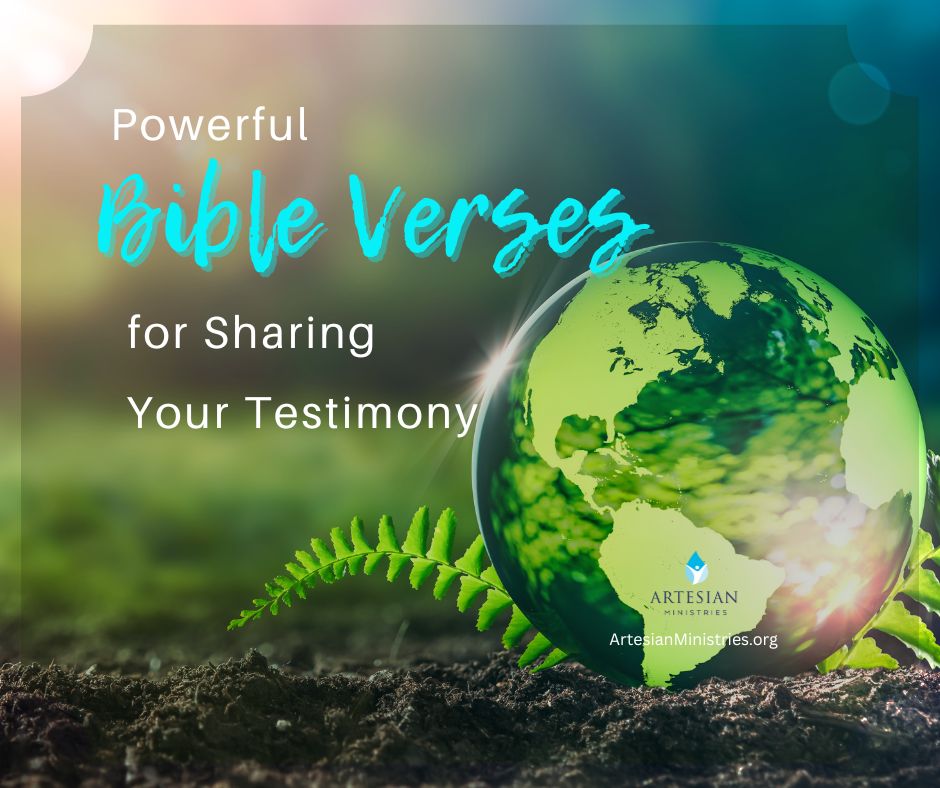
Rain in Parables and Prophecies
Rain imagery features frequently in Jesus’s parables and Old Testament prophecies, often carrying layered meanings about God’s kingdom, judgment, and hope.
Understanding how rain works symbolically in these literary forms can offer richer insights into the messages they contain and inspire fresh perspectives on timeless truths.
- Parables Use Rain as Accessible Symbol: Jesus used everyday experiences like rain to explain profound spiritual truths, making divine concepts relatable. This helps you connect biblical teachings with your own daily life and experiences.
- Prophetic Rain Signals Fulfillment or Warning: Prophets employed rain imagery to foretell outcomes of obedience or disobedience, underscoring the seriousness of covenant faithfulness. Recognizing this helps interpret prophetic messages as calls to action and hope.
- Dual Themes of Judgment and Restoration: Rain in prophecy can signal both coming judgment (withholding rain) and restoration (sending rain), reflecting God’s complex engagement with humanity. This balanced view encourages honest self-examination and trust in redemption.
- Rain as Sign of God’s Timing: Biblical parables and prophecies highlight that rain arrives exactly when God wills, teaching patience and faith in divine timing. This can reassure when life seems uncertain or delayed.
- Imagery Engages Emotions and Imagination: Rain’s sensory qualities—sound, feel, sight—make parables and prophecy vivid, facilitating emotional and spiritual connection to the message. This enriches personal reflection and group teaching.
- Invitation to Renewal within Judgment Context: Prophetic rain symbolism opens paths for repentance and fresh starts even amidst warnings, blending judgment with hope. This duality motivates persistent faithfulness.
- Integration with Other Natural Symbols: Rain often works alongside symbols like drought, harvest, or storms, expanding the layers of meaning within parables and oracles. Recognizing these connections adds depth to biblical study.
Related: What is Light? Biblical and Spiritual Characteristics
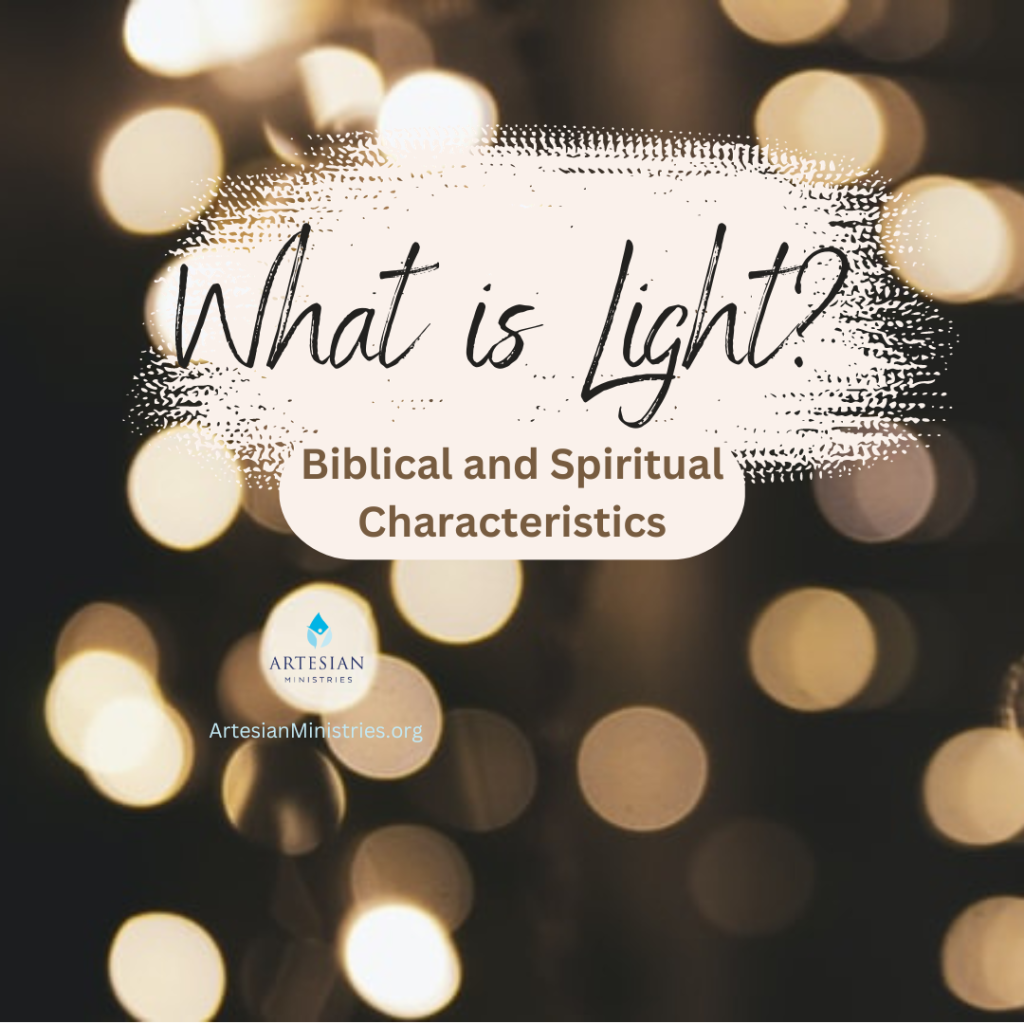
The Role of Rain in Biblical Covenants
Rain holds an important place in biblical covenants, serving as both a sign and a condition of God’s promises to His people.
Exploring this role reveals how rain connects divine faithfulness with human response, deepening understanding of covenant theology and encouraging trust in God’s enduring promises.
- Rain as a Covenant Sign: In the Noahic covenant, rain initiates the flood but also marks God’s promise not to destroy the earth by water again, symbolized by the rainbow. This teaches that rain can be part of both judgment and reassurance.
- Conditional Rain in Mosaic Covenant: Under the law given to Israel, rain was tied to obedience—blessings for keeping commandments, drought for disobedience. Understanding these conditions clarifies how covenant dynamics work as relational and moral agreements.
- Rain as a Symbol of God’s Faithfulness: Regardless of human failure, God’s covenants affirm ongoing commitment, with rain symbolizing the hope and continuity of this divine promise. This encourages believers to remain faithful even in hardship.
- Rain in Prophetic Renewal of Covenants: Prophets envision new covenants accompanied by symbolic rains, reflecting fresh spiritual outpouring and restoration. These passages inspire hope for personal and communal renewal within covenant relationship.
- Rain Connects Physical and Spiritual Blessings: Covenant promises often tie material provision like rain with spiritual favor, showing integrated blessings from God. Recognizing this helps balance faith with everyday realities.
- Participation in Covenant Through Rain: Receiving rain involves trusting God’s Word and responding in faithful living, highlighting that covenant is an active relationship. This invites ongoing commitment rather than passive expectation.
- Rain’s Visibility Reinforces Covenant Remembrance: As a natural and observable sign, rain helps God’s people remember covenant promises in daily life, deepening faith awareness and gratitude.
Related: Characteristics and Faith of Abraham in the Bible
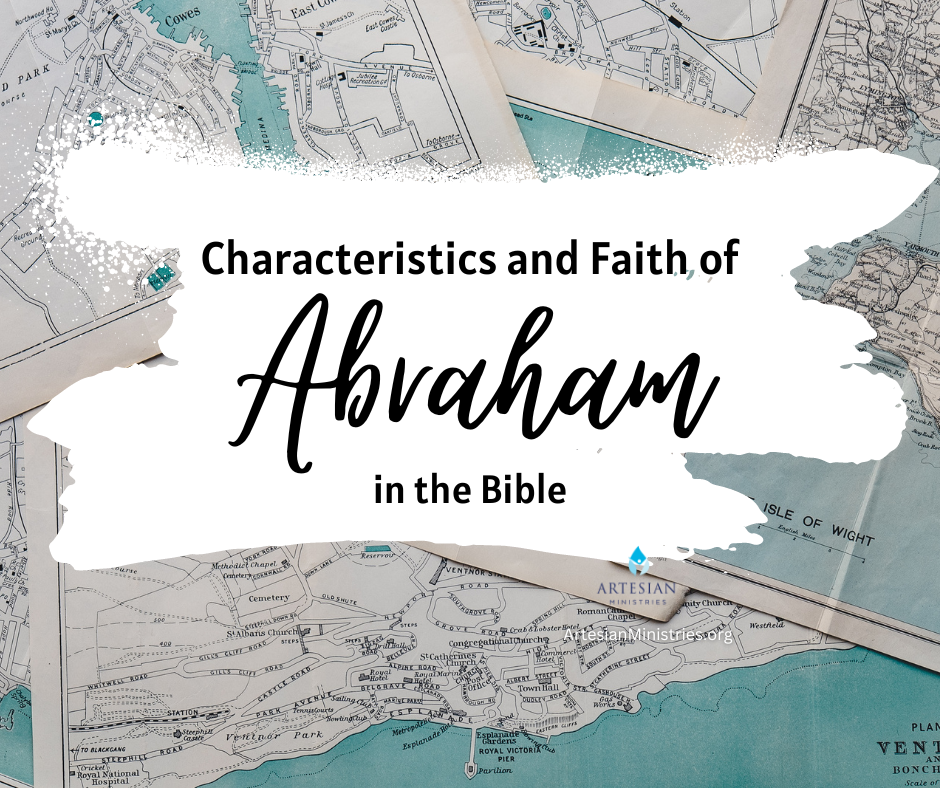
Rain and Growth: Agricultural Significance in Scripture
Given the agrarian backdrop of biblical times, rain’s importance for crops and food production greatly shapes its spiritual symbolism.
By exploring rain’s agricultural role, you’ll gain a fuller appreciation of its life-sustaining power and the way it shapes biblical themes of growth, provision, and dependence.
- Rain as Essential for Harvest: Rain initiates crop growth cycles, making it a direct metaphor for God’s provision and blessing in producing fruitfulness. This encourages believers to trust God for sustenance and growth in life and faith.
- Dependence on Seasonal Rains: The Bible makes clear the delicate balance of timely rains, reflecting the precariousness of livelihood and the need for faith in divine timing. This connects natural rhythms with spiritual patience and hope.
- Symbol for Spiritual Growth: Just as crops need rain to flourish, spiritual lives require God’s nurturing presence symbolized by rain. This metaphor invites believers to seek ongoing spiritual nourishment.
- Warnings of Failed Rains: The absence or failure of rain in scripture often illustrates consequences of sin or unfaithfulness, highlighting a warning about spiritual dryness and the need for repentance. This dual focus promotes vigilance and awareness.
- Community Impact of Rain: Good rains support collective survival and prosperity, emphasizing the interconnectedness of people and the social implications of divine provision. It encourages communal gratitude and responsibility.
- Renewal Cycles Demonstrated: Agricultural rain patterns symbolize seasons of sowing, waiting, and harvesting, paralleling spiritual seasons of development and fruition. This cyclical metaphor invites trust in God’s process.
- Invoking God as Provider: Many prayers and hymns directly ask God for rain, reflecting both dependence and worship. This reinforces spiritual humility and active communication with God.
Related: How Tall and Big Were Giants in the Bible?
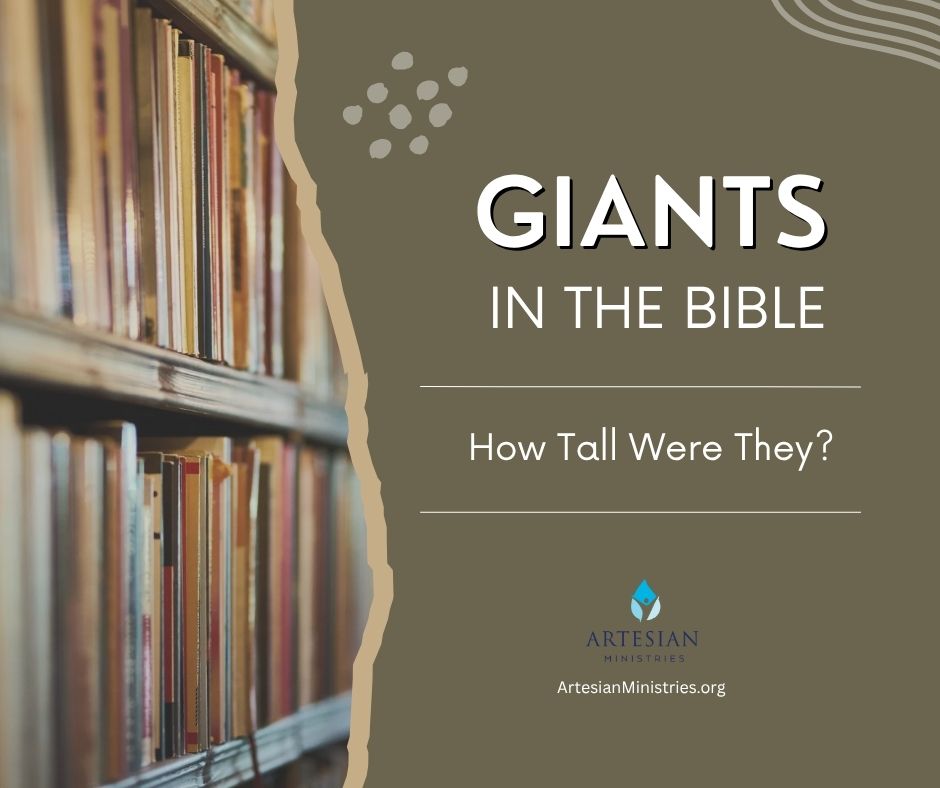
Rain as a Test of Faith and Patience
In many biblical stories, rain’s absence or delay serves as a powerful symbol of spiritual testing. Waiting for rain symbolizes endurance, hope, and trust in God’s timing, teaching valuable lessons about faith under pressure and the blessing of patience.
- Drought as Spiritual Trial: Biblical droughts represent periods of challenge where people must confront uncertainty and dependence on God. This metaphor speaks directly to those facing life’s “dry seasons.”
- Faith Tested by Waiting: The delay or scarcity of rain invites believers to hold fast to faith, mirroring the perseverance required in spiritual growth. It reminds you that God’s timing often differs from human expectations.
- Patience Cultivates Spiritual Depth: Experiences of waiting for rain correspond with deeper character formation, humility, and reliance on God’s promises. This perspective turns challenges into opportunities for maturity.
- Communal Impact Builds Solidarity: Drought affects whole communities, encouraging collective prayer, support, and renewed commitment. This communal dimension offers a picture of shared faith journeys.
- God’s Faithfulness Remains: Even amid droughts, scripture insists God’s covenant continues, inviting hope rather than despair. This reassures believers that trials are temporary and purposeful.
- Prophetic Calls for Repentance: Rainless periods often coincide with calls to repentance and spiritual renewal, showing the test is also an invitation to transformation. This dual message blends challenge and hope.
- Symbol for Environmental and Spiritual Interdependence: Physical droughts reflect spiritual dryness, encouraging integrated care for both earth and soul.
Related: Best Christian Prayer Room Ideas to Strengthen Faith

Rainy Seasons in Biblical History
Biblical history records various notable rainy and dry seasons interwoven with God’s interventions, covenant actions, and pivotal events.
Understanding these patterns provides historical depth and context for interpreting rain’s spiritual symbolism and how communities responded to divine timing.
- Rain Cycles Shaped Ancient Life: The timing and abundance of rains determined agricultural success and survival, deeply influencing biblical narratives and decisions. This historical fact grounds rain symbolism in lived reality.
- God’s Control Over Weather:Scripture repeatedly attributes authority over rain and storms to God, linking meteorological events with divine will and power. This perspective affirms God’s sovereignty over nature and history.
- Significant Rain-Related Events: Events like the Flood, Elijah’s drought, and miraculous rains illustrate how rain features in key biblical turning points. Examining these moments brings clarity about rain’s role in divine plans.
- Communal Responses to Rain Patterns: Prayers, sacrifices, and festivals associated with rain or drought show how ancient Hebrews engaged with God about weather. This highlights the spiritual and social importance of rain.
- Rain as Historical Indicator: Rain records help date and understand historical periods within the Bible, assisting biblical archaeology and scholarship. This data enriches theological reflections with concrete anchors.
- Miraculous vs. Natural Rains: Differentiating between normal seasonal rains and events viewed as miracles deepens appreciation for divine intervention examples. This distinction can shape faith understanding.
- Rain’s Role in Fulfillment of Promises: Covenantal promises involving land fertility and prosperity often connect directly with rain’s presence or absence. This shows rain’s symbolic weight in national identity and divine blessing.
Related: What is the Longest Psalm Contained in the Bible?
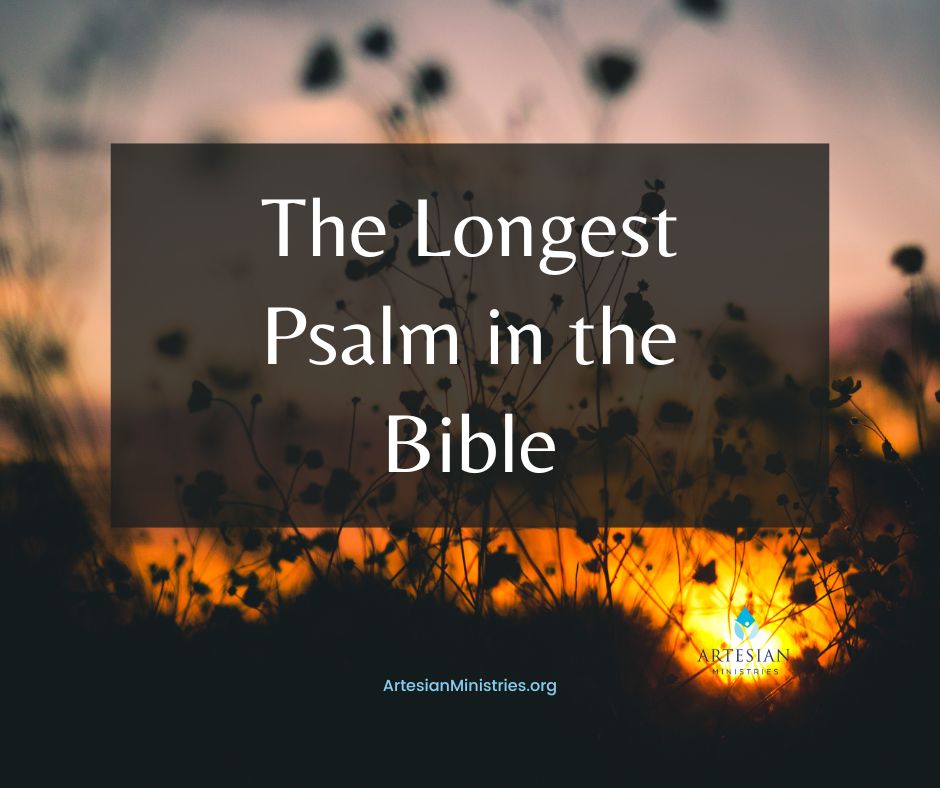
Comparisons of Rain Symbolism with Other Natural Elements in the Bible
Rain’s biblical symbolism often interacts with other natural images such as dew, storms, rivers, and droughts.
Comparing these symbols helps paint a richer picture of how nature communicates divine messages and enriches spiritual understanding.
- Dew as Gentle Nourishment: Dew imagery complements rain by symbolizing subtle, quiet blessings and God’s tender care. This shows the diversity of ways God’s provision can manifest.
- Storms Represent Divine Power and Judgment: Unlike rain’s nurturing role, storms often symbolize God’s wrath or might, adding complexity to nature’s spiritual language. Recognizing these contrasts helps interpret biblical messages accurately.
- Rivers as Life Flows: Like rain, rivers symbolize life, renewal, and God’s sustaining presence. Comparing rain with rivers highlights continuous and abundant divine blessing themes.
- Droughts Point to Testing and Judgment: Drought imagery acts as counterpoint to rain, symbolizing spiritual barrenness and consequences of sin. Juxtaposing drought and rain sharpens understanding of blessings versus trials.
- Natural Elements Form a Theological Network: Together, these images create a rich spiritual lexicon that conveys God’s relationship with creation and humanity. Learning these interconnections expands interpretive skills.
- Seasonal Cycles Show God’s Faithfulness: The recurring interplay of these natural elements mirrors life’s rhythms and God’s dependable care, reinforcing hope. This cyclical perspective fosters trust in divine order.
- Interpreted According to Context: Biblical meaning of natural elements varies with literary context, requiring careful study rather than assumptions. This cautions against rigid or overly literal interpretations.
Related: What Does the Bible Say About Sunrise and Sunset?
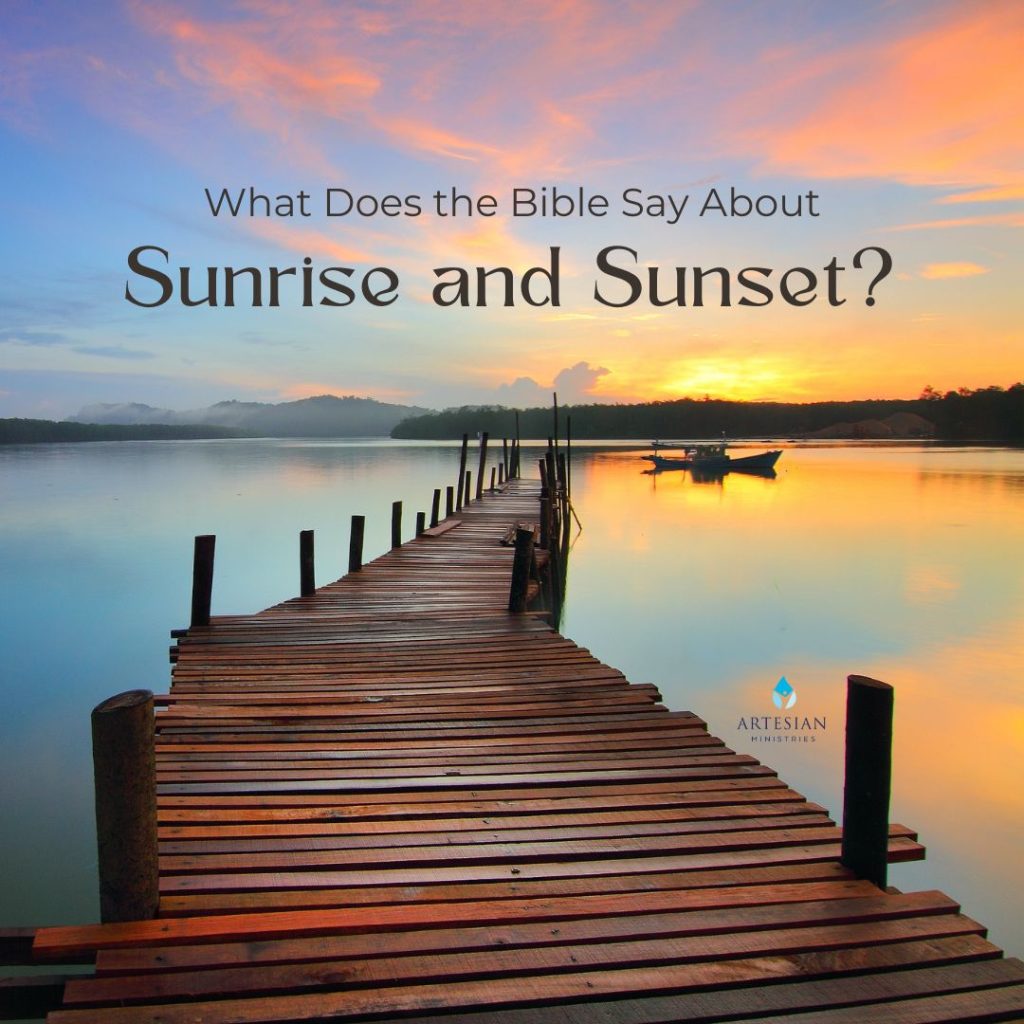
Spiritual Lessons from Biblical Rain Narratives
Stories and passages centered on rain in the Bible offer a treasury of spiritual lessons that can encourage, challenge, and inspire faith today.
By delving into these narratives, you can extract practical wisdom on trust, dependence, renewal, and God’s steadfast love.
- Trust in Divine Provision: Rain narratives highlight the importance of trusting God for both physical needs and spiritual sustenance, encouraging reliance beyond human effort. This trust builds resilience and hope.
- Waiting as Active Faith: Stories that emphasize delayed rain teach that waiting is not passive but involves prayer, hope, and readiness to receive blessings. This reframes waiting as spiritually productive.
- Repentance Leads to Renewal: Many rain stories correlate returning rains with repentance and forgiveness, connecting personal and communal renewal with spiritual health. This lesson inspires continual self-examination and humility.
- God’s Timing Is Perfect: Biblical rain respects divine timing which is sometimes mysterious but always purposeful, prompting faith in God’s wisdom beyond human plans. Accepting this timing fosters peace and surrender.
- Community and Worship Are Key: Rain narratives often involve collective prayer and worship, showing how spiritual breakthroughs happen not just individually but corporately. This reinforces the power of community in faith.
- Hope in Desolation: Even when situations seem dry or hopeless, rain narratives assure that God’s life-giving grace can revitalize barren places, spiritually and physically. This encouragement sustains during hard times.
- God’s Promise of Continuity: Rain stories underscore the ongoing nature of God’s care, affirming that blessings will return and growth resume after hardship. This teaches perseverance and optimism.
Related: The Biblical Meaning of Rainbows and Double Rainbows
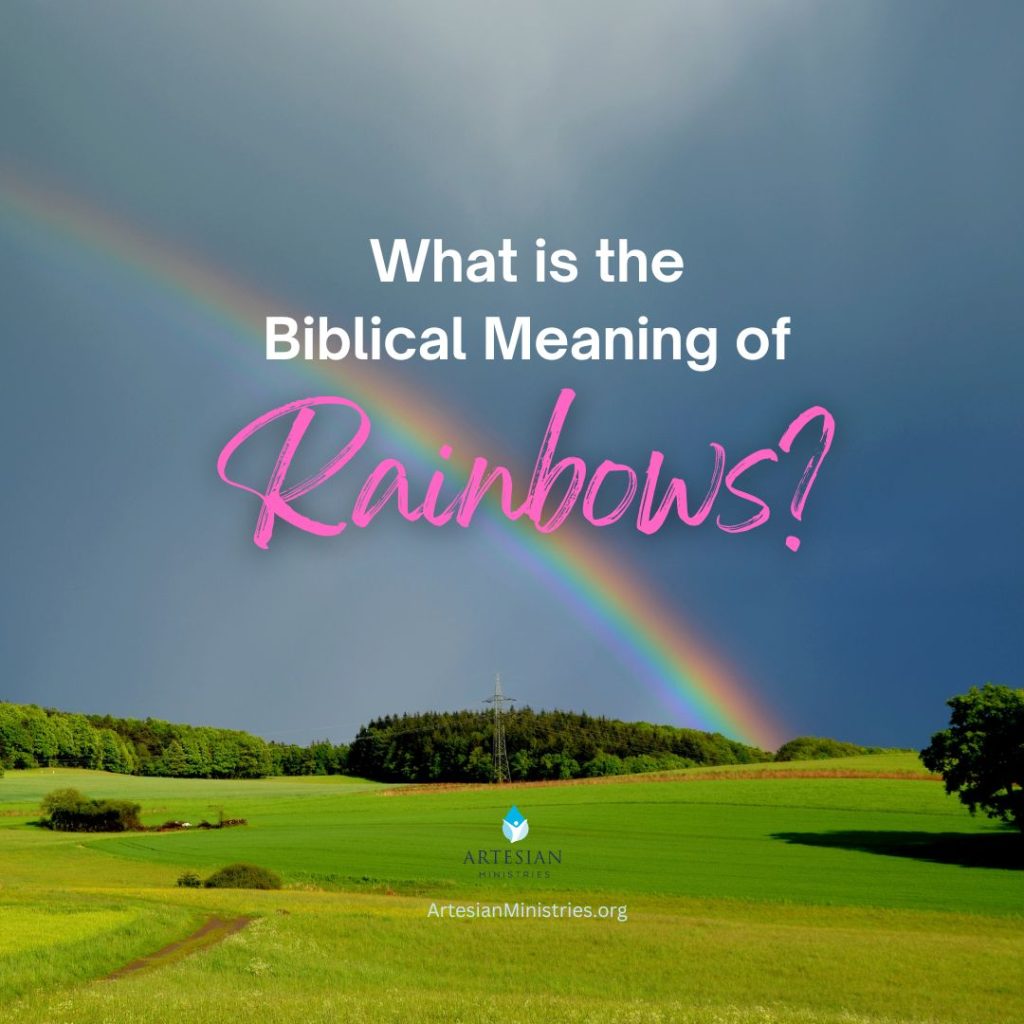
Modern Reflections on the Spiritual Meaning of Rain
Rain’s spiritual symbolism continues to resonate today, inviting contemporary believers to discover fresh meaning and guidance in their lives and communities.
By bringing biblical insights into modern reflection, rain becomes a dynamic lens for understanding God’s ongoing work and presence.
- Continued Relevance: Rain metaphors remain powerful for depicting God’s blessing, renewal, and mercy in an age of complexity and uncertainty. This continuity connects ancient wisdom with modern faith challenges.
- Environmental Awareness: Contemporary concerns about climate emphasize stewardship, linking rain symbolism to care for creation and responsible faith practice. This bridges scriptural themes with ecological ethics.
- Personal Spiritual Growth: Rain imagery inspires reflection on inner renewal, patience, and receptivity to God’s working in everyday life. This fosters spiritual vitality and intentionality.
- Community and Global Connections: Rain’s universal role reminds believers of shared dependence and responsibility, encouraging solidarity, compassion, and justice. This expands concern beyond personal to collective spirituality.
- Use in Art and Media: Modern expressions through music, literature, film, and art frequently borrow biblical rain symbolism to convey hope, cleansing, or transformation. Engaging these forms enriches spiritual experience.
- Integration with Science and Faith: Acknowledging rain’s physical and symbolic meanings encourages harmony between scientific understanding and spiritual insight. This promotes holistic faith.
- Invitation to Hopefulness: Rain imagery invites hopeful anticipation even in difficult times, encouraging believers to trust in God’s faithful provision and justice for the future. This sustained hope bolsters resilience.
Bottom Line
God promises that every believer receives an outpouring of the Holy Spirit. God’s Spirit in you provides the crucial discernment you need each day. In His strength, you can face every season of life you experience, whether stormy or temperate.
Related Posts:
- Best Bible Reading Plans
- Warriors in the Bible: 13 Essential Life Lessons to Learn
- 50 Motivational Bible Verses About Aging Gracefully
About the Author
Donna is a sought-after speaker, multi-published author, and Bible teacher. Her path from unchurched to becoming passionate about sharing Jesus was difficult. Read about her God-breathed journey: “From Unchurched to Becoming a Multi-Published Author and Sought-After Speaker.” If you want to send Donna a quick message, visit her here.

{Some of these links are affiliate links. If you purchase through that link, the ministry may receive a small commission at no extra cost to you.}
